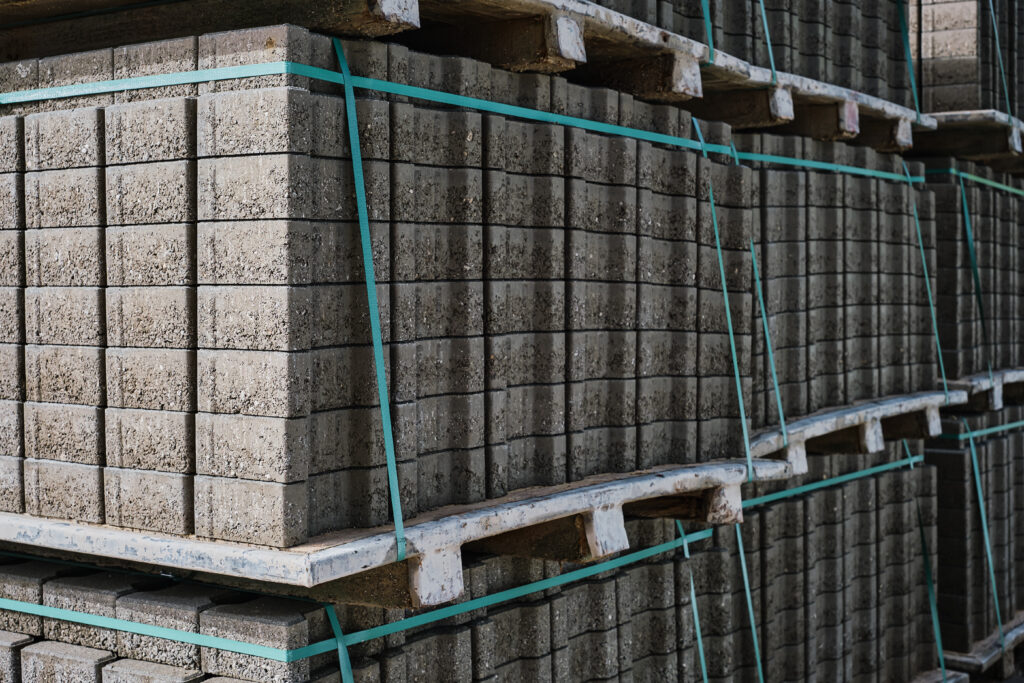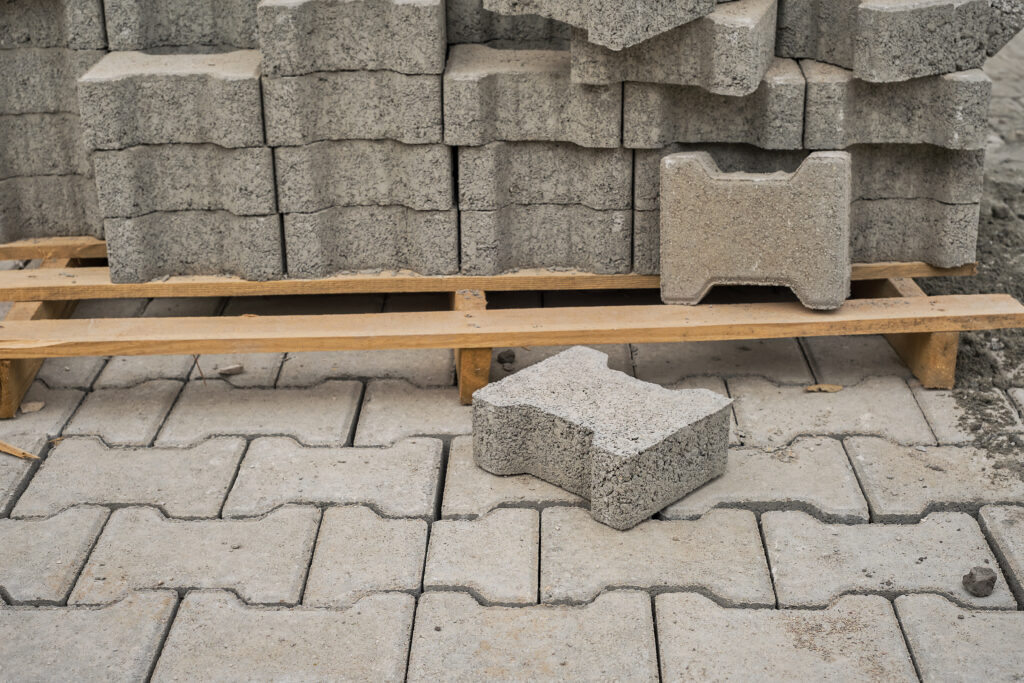Pavers are a popular choice for creating durable and aesthetically pleasing outdoor spaces, be it for driveways, walkways, or patios. However, before embarking on a landscaping project involving pavers, there’s a question that many homeowners end up asking: “How much does a pallet of pavers weigh?”.
It is in fact crucial to understand the logistical aspects, particularly the weight of the materials, if you’re thinking about starting working with pavers. One common way pavers are sold and transported is by pallets, and knowing the weight of a pallet is essential for planning and executing your project efficiently.
So let’s embark on this journey and dedicate this article to answering: How much does a pallet of pavers weigh?

Jump to:
How much does a pallet of pavers weigh?
To understand how much does a pallet of pavers weigh, it is pivotal to understand the simple aspect that pavers can be made of many different materials, and that will influence the final weight of a pallet.
The four main types of pavers are concrete, brick, natural stone, and porcelain, each catering to different aesthetic preferences, durability requirements, and budget considerations.
The weight of pavers can vary depending on their size, thickness, and the specific type of material used in their manufacturing.
To get an accurate weight for a specific type of paver, it’s best to refer to the manufacturer’s specifications or contact the supplier directly. The weight of pavers is an important consideration, especially when planning installations or determining load-bearing capacity for driveways, walkways, or other structures.
- Concrete pavers: on average, a standard concrete paver that is 2 inches thick and measures 8 inches by 8 inches can weigh around 20 to 30 pounds (9 to 14 kilograms). However, larger or thicker pavers will weigh more.
- Brick pavers: a standard brick paver that is commonly used for outdoor applications, such as driveways and walkways, might weigh around 4 to 5 pounds (1.8 to 2.3 kilograms) per brick. However, concrete brick pavers can be heavier.
- Natural stone pavers: The weight of natural stone pavers can vary widely depending on the type of stone we are talking about.
Granite, being a dense and heavy stone, typically weighs around 20 to 30 pounds per square foot, depending on its thickness.
Limestone, travertine, and slate pavers are generally lighter than granite, so their weight can range from 10 to 20 pounds per square foot, again depending on thickness.
Sandstone stands between these two ranges of weight, ranging from 15 to 25 pounds per square foot. - Porcelain pavers: porcelain pavers are divided into two categories: standard thickness and double thickness.
Porcelain pavers with a standard thickness (approximately 3/4 inch or 20 mm) might weigh around 8 to 12 pounds per square foot (approximately 40 to 60 kilograms per square meter).
As for porcelain pavers with a double thickness (approximately 1 1/4 inch or 30 mm) can weigh more, typically in the range of 12 to 20 pounds per square foot (approximately 60 to 100 kilograms per square meter).
At the end of the day, the weight of a pallet of pavers will usually be indicated by the manufacturer. But in case it isn’t, these values can give you some idea in case you need to make some calculations yourself.

Paver pallet dimensions
Pavers are often packaged and sold on pallets for easy handling and transportation. Pallet sizes can vary, but a common dimension is 2 feet by 2 feet.
Manufacturers may, however, opt for larger or smaller pallets depending on various factors, such as the dimensions and thickness of the pavers they produce. This variability in pallet size is primarily driven by the diverse range of paver designs and applications available in the market.
To ensure precise project planning and execution, consumers must verify the specific dimensions of the pallet when making a purchase.
This step is crucial as it directly impacts factors like storage space requirements, transportation logistics, on-site handling, and, evidently, the final weight of the product.
Logistics and planning
Knowing the weight of a pallet of pavers is paramount when engaging in logistical planning throughout the procurement and delivery stages of your construction or landscaping project.
This information serves to ensure that your team is adequately equipped with the requisite machinery and manpower to handle the materials safely and efficiently.
By having a clear grasp of the weight, you can make informed decisions about the most cost-effective and practical mode of transportation, optimizing your budget and resources.
This level of precision is especially crucial when dealing with large-scale projects where transportation expenses can significantly impact the overall budget.
Moreover, awareness of the weight of the pallet is instrumental in ensuring compliance with any weight restrictions or regulations that may be imposed by local authorities or transportation guidelines.
Failing to adhere to these regulations can result in delays, fines, or even legal consequences, all of which can adversely affect the timeline and budget of your project.

Asking for a professional opinion
In conclusion, the weight of a pallet of pavers is a vital consideration for anyone undertaking a landscaping project. And the best way to know that is by working closely with professional hardscape contractors.
Professionals in the hardscape industry have close contact with manufacturers and suppliers for precise weight information, making sure to use that information so your project achieves optimal results.
Here at JS Brick, over our 23 years of experience in the hardscape industry, the information of how much a pallet of pavers weighs has been pivotal many times, so know how important it is.
And, if you happen to be around our area of activity – Sarasota County, FL – make sure to contact us for a free estimate on our services so we can help you with your paver project.



